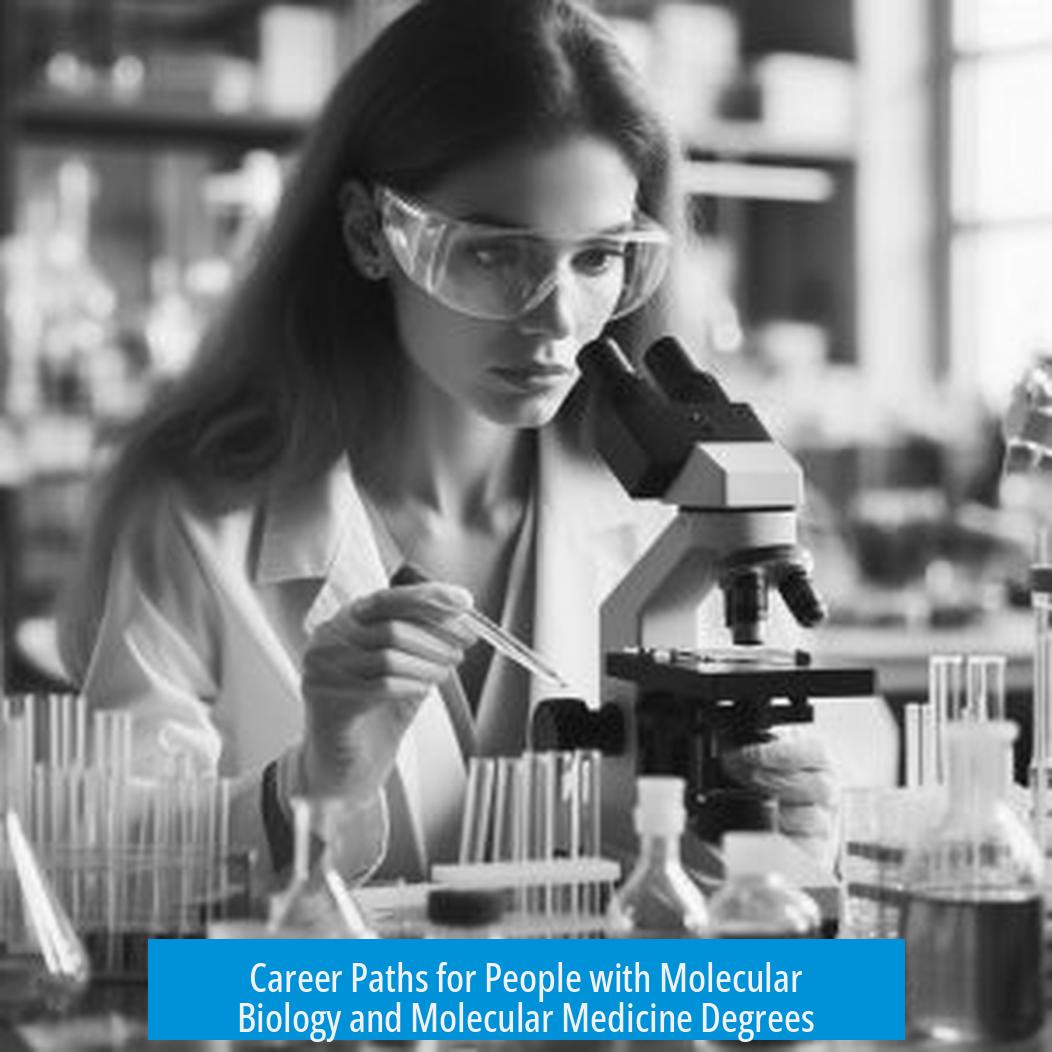Career Paths for People with Molecular Biology and Molecular Medicine Degrees

People with degrees in molecular biology or molecular medicine work in diverse roles spanning academia, clinical practice, biotechnology, teaching, and industry. Their careers vary broadly based on additional training, interests, and skills acquired.
Academic and Research Roles
A common path is pursuing research and academic positions. Many graduates become postdoctoral researchers, engaging in focused laboratory projects after their PhD. Some advance to faculty roles as assistant professors or principal investigators, leading their own research groups.
- Postdoctoral Researcher: Conduct detailed scientific studies post-PhD in biochemistry or molecular biology.
- Assistant Professor / Principal Investigator: Manage labs and mentor students while securing research funding.
- Higher Academia: Includes faculty, research scientist roles or positions in professional schools.
Clinical and Medical Careers
Another significant career trajectory involves clinical molecular genetics. Individuals who combine a PhD with an MD may work as clinical molecular geneticists diagnosing genetic conditions.
- Clinical Molecular Geneticist: Requires 10-14 years of training including medical school and residencies.
- Positions often offer competitive salaries, around $150,000 after taxes.
- This field demands long-term commitment but provides impactful clinical applications.
Industry and Biotechnology Roles
Molecular biology graduates also find roles in biotech companies and related industries. This includes scientific marketing, work in sustainable agriculture leveraging microbial biotechnology, or roles at corporations like Amgen.
- Biotech Scientific Marketing: Communicates science products to customers and stakeholders.
- Corporate Employee: Engages in product development, research, or technical roles.
- Bioagriculture: Develops sustainable fertilizers using microbial and molecular techniques.
Teaching Positions
Some graduates choose teaching. For example, teaching International Baccalaureate (IB) biology in international schools abroad is a popular option, combining scientific expertise with education.
Challenges in the Job Market
The molecular biology job market can be challenging. Graduates may find themselves overqualified for entry-level roles or lacking specialized skills for advanced positions.
- Qualification Mismatch: Difficulty finding roles matching skill level or specialization.
- Adapting skills or additional qualifications can improve prospects.
Career Development Advice
Integrating molecular biology with computational skills improves job flexibility and opportunities.
- Double Major in Molecular Biology and Computer Science: Enhances programming and data analysis capabilities.
- Develop Additional Skills Early: Gain experience through internships, volunteering, or startups during undergraduate studies.
- Software Development: An alternate career path often leveraged by those with strong computational skills.
Key Takeaways
- Molecular biology graduates work in academia, clinical genetics, biotech industry, and teaching.
- Clinical molecular genetics requires extensive medical and research training with competitive salaries.
- Industry roles include scientific marketing, biotechnology, and sustainable agriculture development.
- Job market challenges make skill diversification crucial, especially computational skills.
- Early skill development and combining biology with computer science increases career options.





Leave a Comment